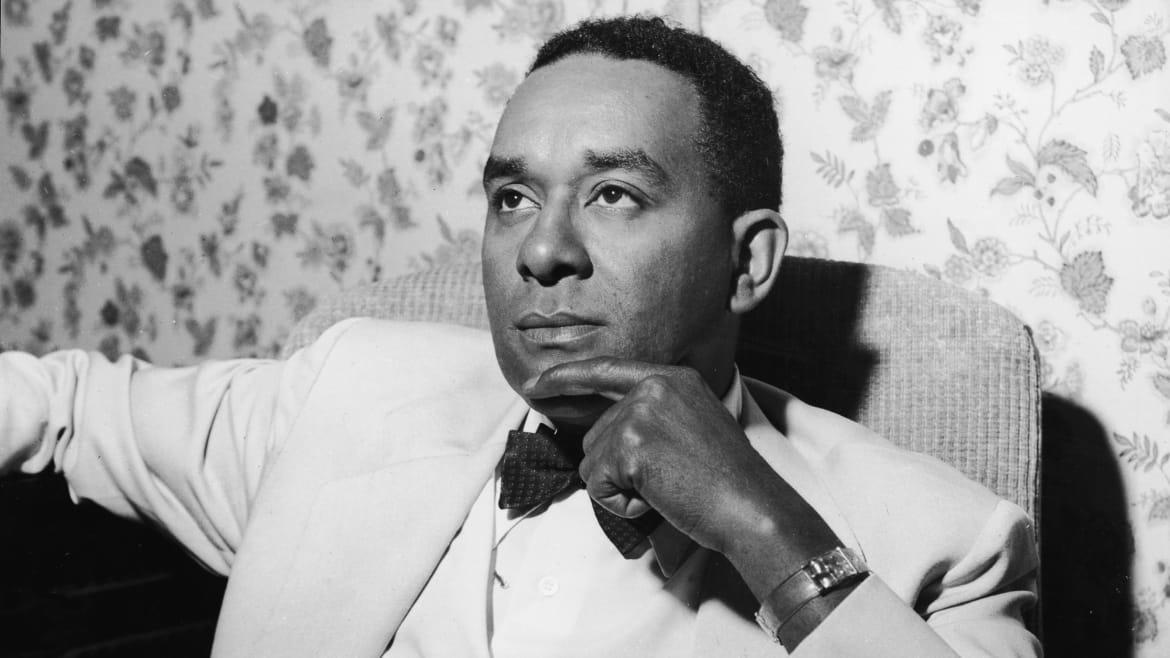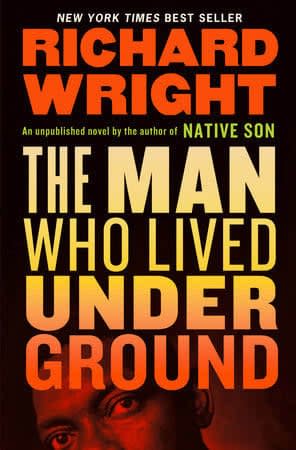Here’s the Novel Richard Wright Wasn’t Allowed to Publish

I had to start Richard Wright’s novel The Man Who Lived Underground three times before I could get past the first 20 pages. On the first couple of tries, I had to put the book down; it was too painful to keep reading—and I’ve got a strong stomach. The third time I just buckled down and plowed through. It still wasn’t easy.
As anyone knows who has read Wright’s memoir Black Boy—that’s the one that opens with a 4-year-old boy accidentally setting fire to his family’s home—no writer understands how to start a story better than Richard Wright. The Man Who Lived Underground proves the point all over again.
Fred Daniels is walking home from work when he’s picked up by the cops, taken to police headquarters, and beaten almost to death, all to extract a false confession that he killed a white couple in their home.
Discovering Café Tournon–the Hidden Gem of African American Paris
The beating goes on for about 30 pages, but brutal as it is, it is nowhere as horrifying as the placid, bigoted assumption by the police that the first Black man they see in the neighborhood of the killing they’re investigating is their chief suspect. As far as detectives Murphy, Johnson, and Lawson are concerned, Daniels was a convicted murderer the moment they first saw him walk down the sidewalk.
The Man Who Lived Underground is now being published in book form for the first time. Wright wrote the novel in 1941, and parts were published in literary magazines, but his publisher turned it down. I can’t find any explanation for this decision, but if I had to guess I would say it had nothing to do with the quality of the writing, which is superb throughout, and everything to do with its indictment of the horrific segregated world Wright describes. It does not take a terribly cynical mind to think that even well-intentioned white editors in the early 1940s might have found Wright’s vision unbelievable.
An implacable sense of doom pervades this novel almost from its first page. At the end of the beating, the true horror of Daniels’ ordeal becomes clear: He himself is convinced that for any of this to make sense, he must be guilty of… something: “what these men said, what he said, the blows and curse words, were all neutral and powerless to alter the feeling that, though he had done nothing wrong, he was condemned, lost, inescapably guilty of some nameless deed.”
Almost from page one you know no good will come from any of this. No one is riding to Daniels’ rescue. And yet, somehow Wright makes us keep reading, as though spellbound. Like Daniels, we are helpless, and as he is pulled into the waking nightmare of torture and confession, we follow, unable to intervene but unable to turn away.
As I said, it’s painful reading, and that’s just the first 30 pages or so, a prologue to Daniels’ surreal journey that takes up the rest of the book. And the thing to keep in mind is that Daniels’ suffering is not gratuitous. It is utterly necessary. He is beaten to the point of insanity and we have to watch every step to understand what happens next. Because he escapes: escapes one hell and plunges into another.
Without giving too much away, let it suffice that Daniels makes his way to the city sewers, and there he dwells for uncountable days, constructing an alternate existence, one where he lives near the world—indeed, where he spies on the white world above ground, even steals from it—but is never part of it.
In the hands of a writer with less genius than Wright, this situation could drown in metaphor: the Black experience akin to being buried alive.
But Wright brushes right past that. The metaphor, like the beating that ignites the narrative, is prologue, preamble, the cliff’s edge off which Daniels tumbles into a world upside down, where stolen money is useful only for wallpapering the cave-like room from which he presides over a topsy-turvy kingdom where even the sun is dark.
Wright wants us to understand why Daniels goes mad, and why madness is the only rational reaction to the surface world he escaped and the world he creates underground. In “Memories of My Grandmother,” a long essay that accompanies the novel (it was always Wright’s desire that they be paired), he describes the powerful family matriarch under whose thumb he grew up: a devout Christian Scientist who constructed a vision of the world that fiercely excluded anything of which she disapproved or which she disbelieved. To her, this faith-based blinkered lens made life possible; to anyone else in the family, it was all but unbearable.
The Man Who Lived Underground has spiritual antecedents in the work of Dostoyevsky and Gogol and foreshadows Ellison’s Invisible Man. But the two literary works that I thought of constantly while reading this novel were Albert Camus’ novel The Stranger and Flannery O’Connor’s story “A Good Man Is Hard to Find.” All three were written in the mid-20th century, all three are like dreams from which we cannot awake, dreams that foretell their ultimate horror almost from the get-go, and dreams that seem as fresh and frightening and true today as they did when first published.
All three works are also ultimately mysterious. The events they describe are plain as day, and yet there is something inexplicable and unsettling at their core. The protagonists of the three works are not admirable or even very likeable. And only O’Connor gives us a little hint at the end of her story about how we’re supposed to read it, after the Misfit murders the grandmother: “‘She would have been a good woman,’ The Misfit said, ‘if it had been somebody there to shoot her every minute of her life.’” If you’ll recall, O’Connor has spent the majority of her story to this point ridiculing this foolish, obnoxious old woman. But her point, hard as it is to swallow, is that the Misfit’s observation rings true for all of us. So it is with Camus’ Meursault, who begins The Stranger by murdering a man for no good reason, and so too with Fred Daniels: If we do not recognize something of ourselves in these people, we miss the point.

Ezra Pound said, “Literature is news that stays news.” Richard Wright’s The Man Who Lived Underground, now 80 years old, could have been ripped from tomorrow’s headlines.
Get our top stories in your inbox every day. Sign up now!
Daily Beast Membership: Beast Inside goes deeper on the stories that matter to you. Learn more.

